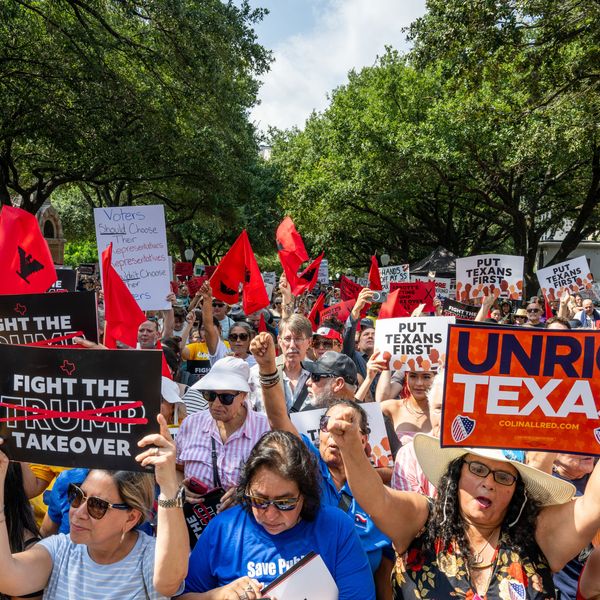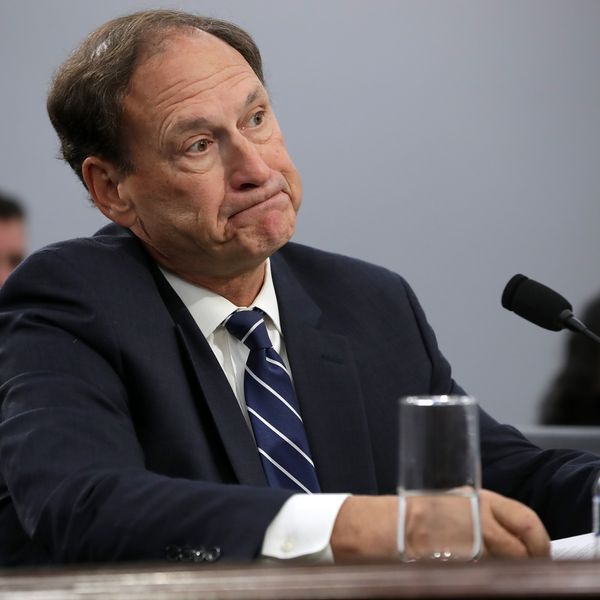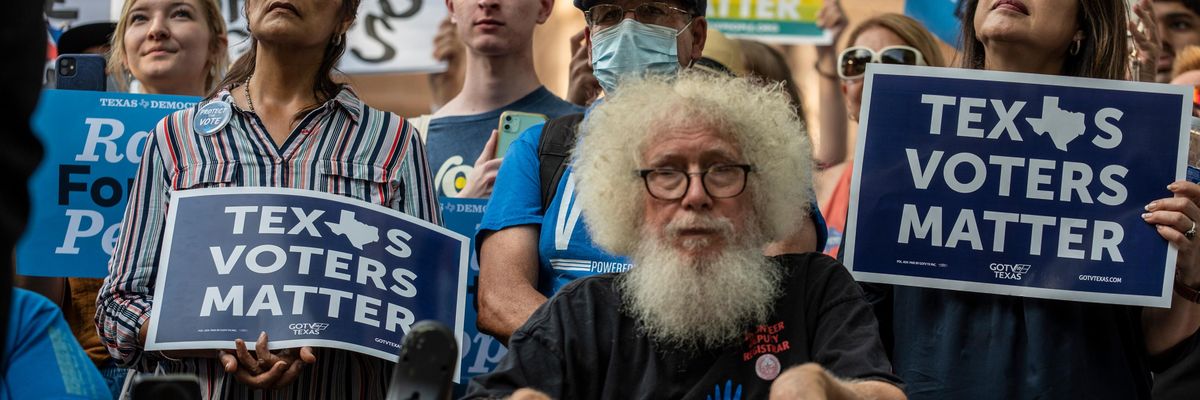A lawsuit against a widely criticized voter suppression law in Texas was filed Friday by a group of civil rights organizations who argue the new restrictions imposed by Republican lawmakers in the state violate core constitutional protections.
"For democracy to work, it must include all voices. SB 1 is an extremist anti-voter bill that raises even more barriers to voting and specifically targets vulnerable communities, especially voters with disabilities, voters of color, and elderly voters."
Filed on behalf of several groups in Texas--including the League of Women Voters of Texas; the Texas Organizing Project; Workers Defense Action Fund; REV UP Texas; and OCA of Greater Houston--the lawsuit says that Senate Bill 1, which curtails early voting hours, bans drive-thru voting, and severly restricts vote-by-mail in the state, is in direct violation of the Voting Rights Act, the Americans with Disabilities Act, and the U.S. Constitution.
Representing the groups in the lawsuit is the American Civil Liberties Union, the ACLU of Texas, Asian American Legal Defense and Education Fund, Disability Rights Texas, the Texas Civil Rights Project, and the law firm of Jenner & Block LLP.
In a statement, the ACLU said that the implementation of S.B. 1 in Texas "makes it virtually impossible for members of the plaintiff organizations to vote, especially those who are more comfortable with languages other than English, those with disabilities, and who have no option but to vote by mail."
Citing public polling in Texas that shows majority support for the right to vote for all people in the state, the plaintiffs argue that while all Texans will be hurt by the new measures, it will be the poor, the elderly, communities of color, and those with disabilities who will suffer the most.
"For democracy to work, it must include all voices. S.B. 1 is an extremist anti-voter bill that raises even more barriers to voting and specifically targets vulnerable communities, especially voters with disabilities, voters of color, and elderly voters," said Grace Chimene, president of the League of Women Voters of Texas. "S.B. 1 is a violation of our freedom to vote, and we will continue to fight every attempt to silence Texas voters."
Emily Timm, co-founder and co-executive director of the Workers Defense Action Fund, called the legislation rammed through by the GOP "part of a larger coordinated attempt to take political power away from working families" in Texas.
"We should be aiming to increase civic engagement throughout our state," Timm said, "not make it more difficult for our communities to exercise their right to vote. Texans building our state deserve to have their voices heard at the ballot box and S.B. 1 will significantly impact their ability to do so."
According to Lia Sifuentes Davis, senior litigation attorney with Disability Rights Texas and acting co-counsel in the suit, "People with disabilities, who make up 20 percent of the U.S. population, already face significant barriers to exercising their legal right to vote, such as physically inaccessible polling sites, election workers refusing to provide accommodations, mail-in ballots that cannot be used by people who are blind, and more."
Vowing to defeat the law in court, Adriel Cepeda Derieux, senior staff attorney with the ACLU's Voting Rights Project, said, "This assault on voting rights and democracy cannot go unchallenged. We urge the court to strike down the barriers to voting that these new illegal restrictions impose."



